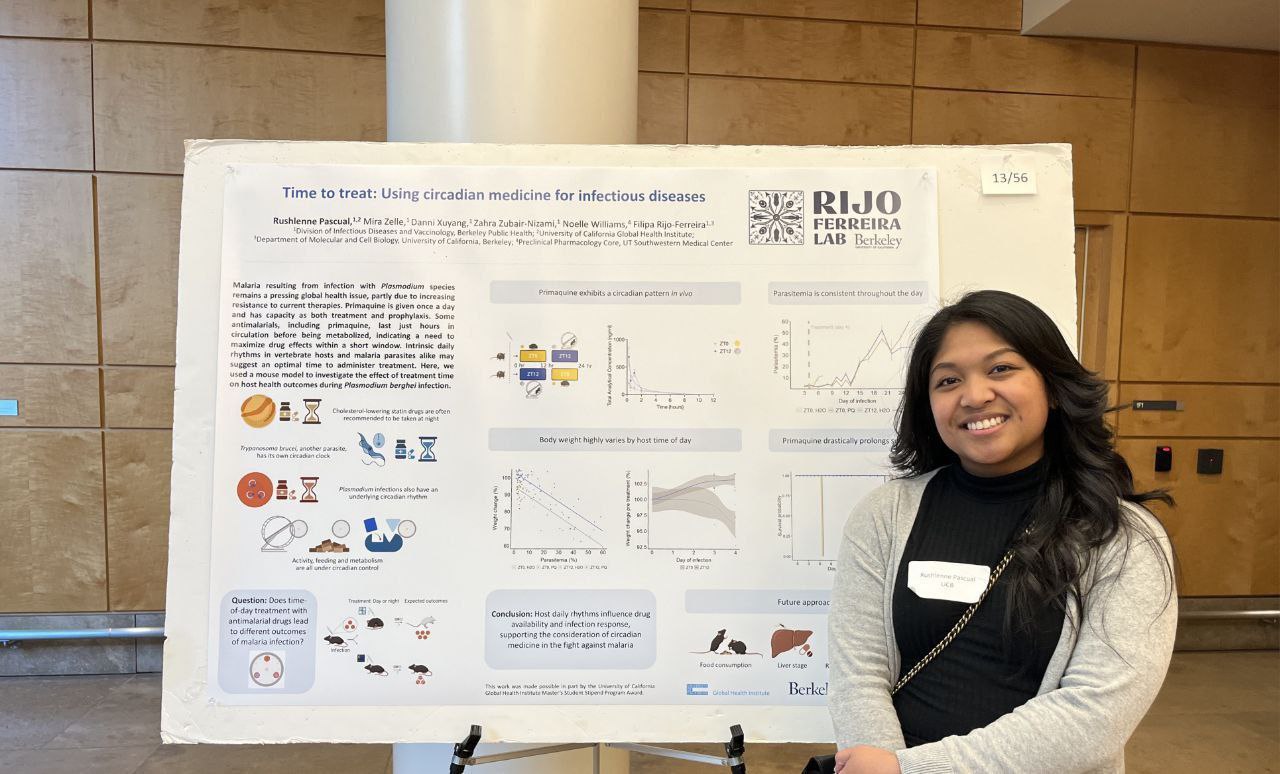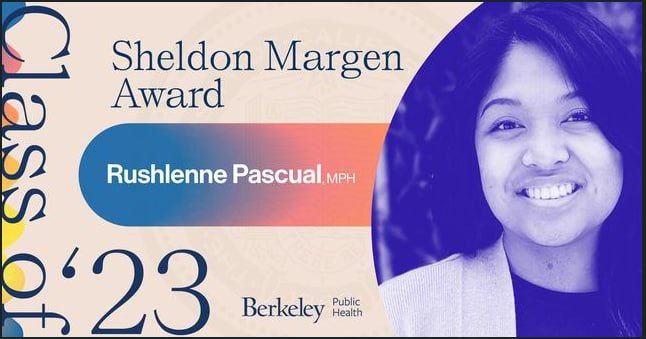
I recently graduated from the University of California, Berkeley, with my Master of Public Health in Infectious Diseases and Vaccinology. During my MPH, I joined the Rijo-Ferreira lab and spearheaded an original research project exploring the applicability of circadian medicine to treat malaria. As part of the University of California Global Health Institute Master’s Student Stipend (UCGHI MASS) Program, I’ve received support to complete this project looking at how time-of-day treatment can be optimized for mitigating infectious diseases.
Malaria claims approximately half a million lives and causes about a quarter of a billion cases annually. Its hallmark symptom is rhythmic fevers resulting from synchronized bursting of Plasmodium parasitized red blood cells, of which some species have begun demonstrating decreased susceptibility to current antimalarial drugs. The increasing threat of drug resistance highlights the need for innovative treatment approaches especially in highly endemic areas.
Since existing literature shows that some parasites exhibit differential susceptibilities to antiparasitic treatments at different times of the day, I wanted to know if the same would hold true for malaria parasites using primaquine, an antimalarial taken once a day and for which an optimal time of administration has not yet been established. My project laid much of the foundation for future work in the lab investigating not only factors like parasite load and effective drug dosage, but also host rhythms possibly driving the immune response at the time of infection, potential differences in parasite virulence based on parasite rhythms, and how the two interface to cause varying disease outcomes.
I thoroughly enjoyed investigating the effects of circadian rhythms on parasitic infections by intertwining the fields of circadian biology, pharmacology and parasitology. My contributions additionally earned me the Berkeley Public Health Sheldon Margen Award, a distinction given to students harnessing multiple perspectives to tackle issues disproportionately affecting society’s most vulnerable groups. A huge thank you to the UCGHI MASS Program for supporting this work and for allowing me to highlight my transdisciplinary research project in the global health space!

